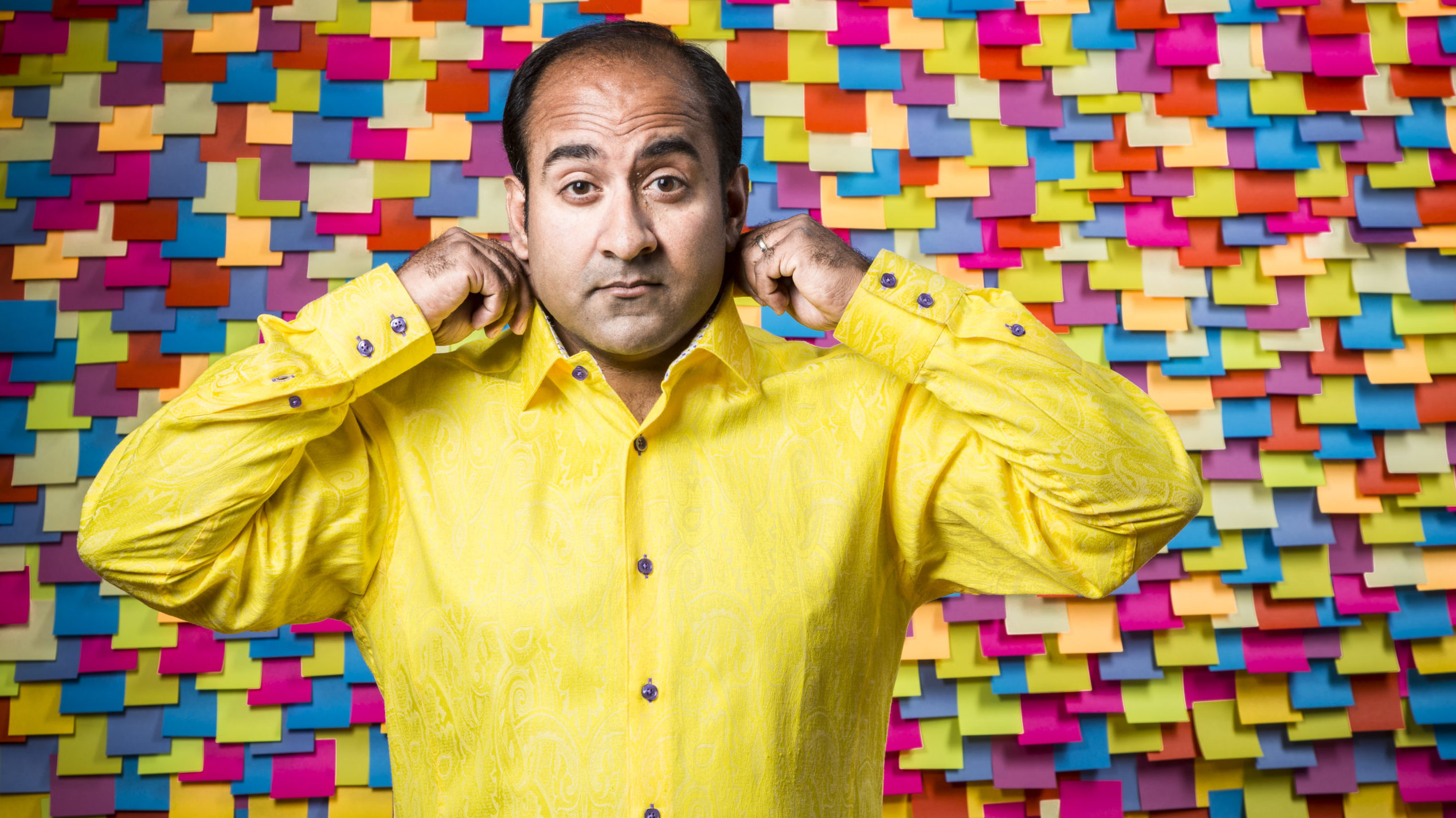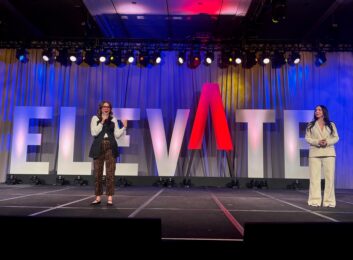Events are coming back. Of course they are.
But right now, it feels hard to be optimistic. As I write this, I’m about to interview an executive at the Consumer Technology Association about the world’s biggest trade show (CES). This year it has gone virtual for the first time ever. That means 100,000 people who would otherwise have descended upon Las Vegas in early January are logging in from home instead. The unspoken fear on everyone’s minds is the same: what if a significant portion of that audience prefer the virtual format?
If you work in the events business, it has been a year of disruption. Canceled events. Virtual experimentation. Zoom fatigue. Automatically extended airline status levels. Ok, that last one isn’t so bad. But the truth is, we have all had to make big adjustments to what we do, all while battling that little voice in the back of heads that keeps saying things will never go back to the way they were.
Events will be smaller. Some will cease to happen at all. That voice might be right. Here’s a better question to ask: what if this is all a good thing?

Like most of you, I rely on the events industry for my business. Not only as a keynote speaker, but also as a curator of large events, as a publisher of books and as someone who has always benefitted deeply from the constant opportunities to meet people face to face at events in order to unlock new opportunities and forge new relationships. Like you, I desperately want events to come back.
They will—and this article is about what you can expect when they do.
For the past decade, what I have become best known for is my annual trend predictions. Every January for the past decade, I have published a new edition of a book that curates and highlights the most important trends for the year to come. A year ago, I wrote the tenth edition of that book—Non-Obvious Megatrends. Two months later, the pandemic hit.
Since then, I have been grounded but not disconnected.
I continued to do live interviews every week from home with fascinating people on my virtual Non-Obvious Insights Show. I curated dozens of the most interesting and underappreciated stories every week to write about in my weekly newsletter. I even wrote a book all about working remotely without getting distracted, lonely or bored. I also tried, as many speakers did, to support the events industry and the people in it who were suffering both emotionally and financially.
Over the past nine months, I spoke at more than 100 virtual events and sessions. We hosted three of our own virtual summits. Each opportunity gave me a chance to see how entrepreneurs, company leaders, content creators, event strategists and technologists were all adjusting to a dramatically shifted world. Along the way, my team and I also read and evaluated more than 300 non-fiction books published in 2020 to select the best books of the year in our annual Non-Obvious Book Awards.
So, after all this research, speaking, reading and curating—what are our predictions for 2021? I wrote this article to answer that question, and also to share some trends from our research that might just give you a little more optimism about what 2021 might bring for the future of events and this industry that we all want to turn itself around.
Trend #1 – The Human Mode

When technology and the world isolates us from one another, people will always seek out and place greater value on physical and authentic experiences designed with empathy and delivered by real people. In Non-Obvious Megatrends, I called this trend the “Human Mode,” and even before the pandemic, it was a shift that inspired everything from UK-based grocery chains creating a “slow checkout” line staffed by humans instead of kiosks for older customers to widespread appreciation for “unperfect” handmade products with natural flaws. Since the pandemic, this yearning for human connection has grown in all of us. As the vaccine rolls out and people start creating their own future normal, this desire will naturally lead to a resurgence in some types of events as people seek out more ways to nurture their professional connections.
Implication for Meeting Professionals: As people turn to events to rekindle their professional and personal connections, they will expect the events that they do selectively choose to attend to respect this demand by structuring events with more networking opportunities, increased free time and more focus on person-to-person interactions versus time sitting and listening to panels or keynote presentations.
Trend #2 – Just Be You

You don’t have to be awesome or save the world. It’s ok to just be yourself. That was one of the biggest themes that seemed to come to life in many different ways across dozens of books published in 2020. In the process of evaluating books for our annual Non-Obvious Book Awards, my team and I spotted books about embracing your averageness, being comfortable in your body, conquering your anxiety and being unafraid to brag just a little better. The message in each case was less about self-improvement and more about embracing yourself and the natural strengths you already have. In other words: just be you.
Implication for Meeting Professionals: As people start to lean into their own identities, it will be more important than ever to give them ways to relay those identities in your event. Can they share an unusual headshot? Is there a fancy ribbon for their badge that could say something more non-obvious? Are you offering a high visibility space for them to proactively share their preferred pronouns? Your event is an opportunity for each of your participants to make a statement about themselves as unique individuals. The more ways you can imagine to help them do that, the more likely they are to bring their whole selves and engage in your event.
Trend #3 – Instant Knowledge

As we become accustomed to consuming bite-sized knowledge on demand, we benefit from learning everything more quickly, but risk forgetting the value of mastery and wisdom. This was a trend I described as “Instant Knowledge” in Non-Obvious Megatrends and it has big significance for anyone organizing an event that includes learning content. This is about more than just our shrinking attention spans. Thanks to the ubiquity of YouTube advice that teach us everything from how to sear a tuna steak to tips for creating studio-style lighting at home for virtual meetings, the way we all expect to learn has fundamentally shifted.
Implications for Meeting Professionals: After nearly a year of streaming home entertainment and watching live videos of musicians performing hit songs from their home studios, our expectations of content and video quality have shifted. Production value and compelling insightful content are no longer optional. We now expect great audio and video, powerful performances and perspective-shifting insights. This means the task of curating who you bring to your stage and making sure they can deliver a unique perspective will be more important than ever.
Final Thoughts

In any situation where we are facing extreme disruption, one of the most useful questions I teach executives to ask is one they too rarely think about: what hasn’t changed? Change captures our attention, but crafting a strategy to win the future means understanding what is constant too. People seek connection. Professionals want to improve their skills. Humans need to foster relationships to continue starting new ventures and closing deals.
Events and meetings have always offered these benefits and will continue to do so.
The pandemic has shifted how people choose to show up at events. Attendees are becoming more selective and in the short term, this means most people (particularly the former road warriors) will likely go to fewer events than before.
On the flip side, the events that they do choose to attend will become more meaningful. In person, they will engage more deeply, attend more sessions, meet more people and maximize their engagement. As a result, these chosen events will have the potential to inspire people more profoundly and lead to more powerful networking connections.
More than ever, people will turn to events and meetings in 2021 to inspire new thinking and to help them expand their professional networks after months of being isolated. This is a good thing—not only for meeting professionals, but for all of us who count on events and meetings as a beacon of professional and personal inspiration and connection as well.
Rohit Bhargava is an author, speaker, trend curator and founder of Non-Obvious Company.




